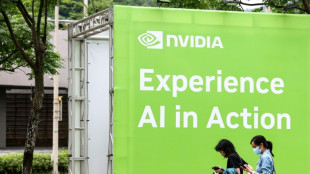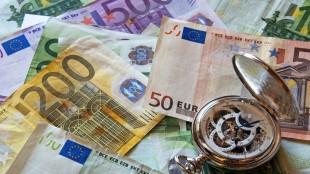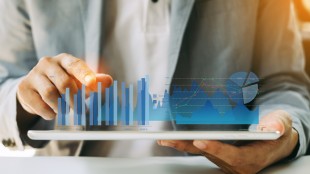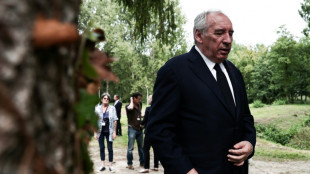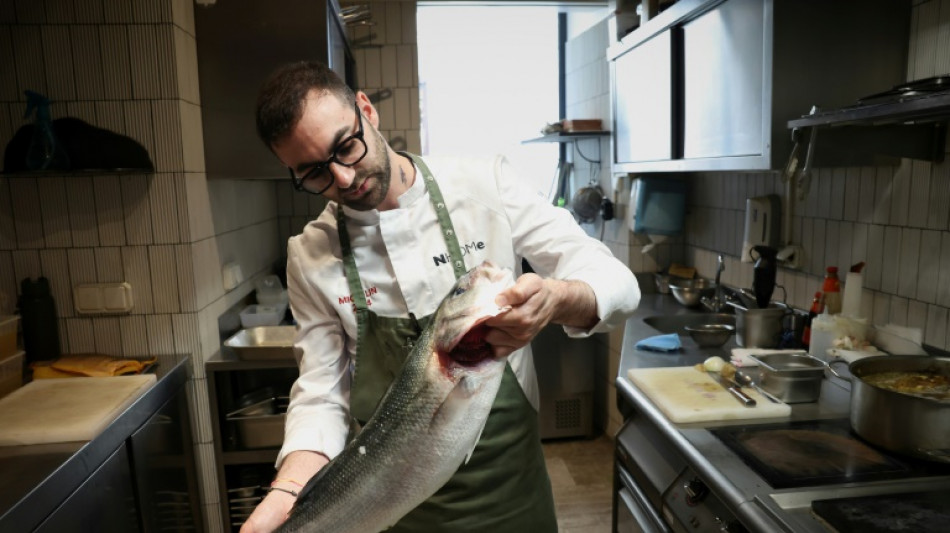
Top French chefs warm to AI in the kitchen

At the annual gathering of France's finest chefs for the Michelin Guide awards this year, the talk was not only about whose restaurants had gained or lost a star.
"Everyone's discussing AI. I was at a table of 12 other chefs and it was the main thing we talked about," Matan Zaken, who runs the one-star Nhome restaurant in Paris, told AFP at the event at the end of March.
The 32-year-old believes that some of his peers are reluctant to admit just how much they are already consulting services such as ChatGPT to help them with recipes and ideas.
"You'd be amazed to know how many people are using it. There are a lot of egos in the business. They're not going to make a big thing about it," he said.
Zaken has made a point of openly embracing the technology, which he says has the potential to produce surprising new pairings of ingredients, offering the possibility of palate-twisting discoveries for diners.
"You have to move with the times," said the Franco-Israeli owner of the intimate 20-cover Nhome, where guests eat around a large communal table.
Instead of relying on his usual kitchen tasting books, he can now access vast online databases of food photographs, recipes and even the chemical analysis of food molecules.
One recent discovery thanks to ChatGPT Premium, which he says is starting to learn his cooking style, was the complementarity between peanuts and wild garlic.
Recently, he joined forces with French digital art collective Obvious Art.
The group provided Zaken with a series of AI-generated photographs of food on plates and he was required to come up with meals that were served at a private event.
This reversed the usual creative cooking process which begins with the ingredients.
- 'Can't replace humans' -
Not everyone is so enthusiastic about the new technology in the kitchen, though.
Although the high-end cooking jobs are seen as relatively insulated from the arrival of AI -- unlike other industries -- the idea of computers helping with, or even replacing, the creative process makes some chefs uneasy.
"Artificial intelligence will never replace the human touch, the palate of the cook," said French celebrity chef Philippe Etchebest, who was toasting a second star for his Bordeaux eatery, Maison Nouvelle, at the Michelin event.
"Artificial intelligence can replace humans elsewhere but in the kitchen I don't believe it will at all."
For others, computers and new technology run counter to the vision of kitchens as an artisanal workplace, based on human-to-human transmission and cooking that is rooted in local tradition and produce.
"It's not really in the spirit of our business," said Thibaut Spiwack, a young chef who runs Anona, an eco-friendly one-star restaurant in Paris that sources all of its produce from the capital region.
"My intelligence is in these," said Thierry Bridron, a pastry chef and head of the Valrhona cooking school, holding up his hands at an after-party at the Michelin awards.
"There's nothing more beautiful than nature and what grows."
- Molecular analysis -
Whatever their views on AI in the creative process, many appeared ready to embrace ChatGPT and other AI services to relieve them of tedious work, such as writing emails, job advertisements or producing kitchen rotas.
New phone-based apps such as Menu or Fullsoon offer more, enabling users to enter recipes and then have instant estimates of cost or the carbon footprint of their dishes.
By using data on past purchases and billing, some existing services can help restaurants predict demand, sometimes by integrating factors such as weather and the dates of local sports events.
Raphael Haumont, a food chemistry expert at Paris Saclay University and co-founder of the French Centre of Culinary Innovation, believes the biggest changes will be on the plate.
He says advanced databases of food ingredients containing details about the molecules that produce the aromas and tastes we enjoy could help produce surprising new pairings.
"Perhaps the computer can find things in common that are completely unexpected. For example, chocolate and cucumber. We know now that it works," Haumont told AFP.
AI-augmented software can also analyse hundreds of thousands of cookbooks, while suggesting new ways to produce or plate food.
"It can analyse 10,000 images of plated langoustine, for example, and say: 'The next one could look like that. Be inspired'," he added.
In his techno-utopian vision of the future, high-precision robots might even do some of the most thankless kitchen tasks for an industry that is perennially short of workers.
"Who wants to peel potatoes for two hours?" he asked.
A.Bergeron--SMC


 London
London

 Manchester
Manchester
 Glasgow
Glasgow
 Dublin
Dublin
 Belfast
Belfast
 Washington
Washington
 Denver
Denver
 Atlanta
Atlanta
 Dallas
Dallas
 Houston Texas
Houston Texas
 New Orleans
New Orleans
 El Paso
El Paso
 Phoenix
Phoenix
 Los Angeles
Los Angeles
